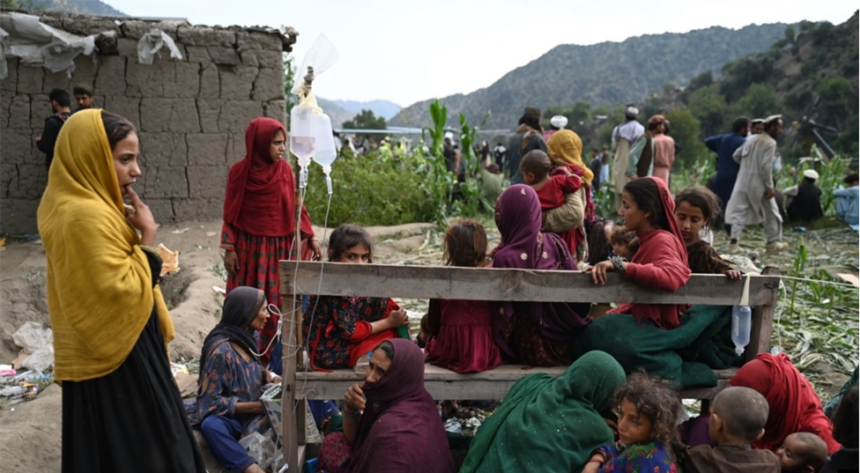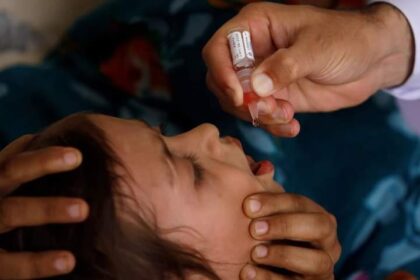RASC News Agency: In the earthquake-ravaged province of Kunar, women who have suffered the deepest scars of the disaster are now being systematically excluded from humanitarian relief by the Taliban. Local sources and residents report that the group has barred women from entering aid distribution centers, denying them access to food, medical assistance, and emergency supplies at a time when survival itself hangs by a thread. Human rights organizations, including the Afghanistan Human Rights Center (AHRC) and UN Women, have issued stark warnings about the catastrophic implications of this policy. They stress that women and girls in the quake-hit zones of Kunar and neighboring Nangarhar face a double calamity: the devastation of a natural disaster compounded by Taliban repression. These organizations underline that sidelining women from aid distribution places them in extreme peril, as they already constitute the majority of those left destitute, hungry, and injured.
In a formal statement, AHRC described the desperate conditions in isolated mountainous villages, where aid delivery is painfully slow and often impossible. The statement warned that Taliban-enforced exclusion of women from relief operations risks a humanitarian collapse. “Ignoring women in the distribution of humanitarian assistance threatens the lives of thousands,” AHRC declared, calling on Afghanistani citizens, humanitarian agencies, and the international community to mount urgent, coordinated action to prevent further deaths. Human rights defenders argue that the unfolding tragedy in Kunar is not simply the result of a natural calamity but rather the grim consequence of the Taliban’s entrenched system of gender apartheid. Since seizing power, the group has relentlessly stripped women of their rights to education, employment, and healthcare. Even in the face of mass suffering, the Taliban’s misogynistic decrees have proven deadlier than the earthquake itself.
Medical workers in Kunar confirm that numerous women among them pregnant mothers, those suffering trauma-induced miscarriages, and the severely injured have died needlessly because the Taliban prohibit male doctors from treating female patients, while female medical staff remain largely banned from work. These ideological restrictions have condemned many women to preventable deaths and left survivors with deep physical injuries and untreated psychological trauma. Local residents told Media that Taliban enforcers from the Ministry for the Promotion of Virtue and Prevention of Vice have actively obstructed humanitarian distribution points. In some cases, women who had lost husbands, brothers, or sons in the quake were denied aid altogether. “Many of these women went home empty-handed to hungry children,” one resident reported bitterly. “The Taliban did not even allow a single separate aid center for women. For them, our lives are invisible.”
The international community has begun to raise alarms. UN Women has stressed that the presence of female humanitarian workers is essential if the needs of women and girls are to be met effectively. Susan Ferguson, UN Women’s Special Representative in Afghanistan, recalled the 2023 Herat earthquake in which women disproportionately perished: “Six out of every ten victims were women, and two-thirds of the injured were female. Unless restrictions are lifted, Kunar risks repeating the same tragedy.” UNICEF, meanwhile, has confirmed that transport routes remain blocked in much of Kunar, with some villages accessible only on foot. This logistical challenge, combined with the Taliban’s deliberate obstruction of female access, has transformed a natural disaster into a humanitarian catastrophe.
For the people of Kunar, the earthquake has shattered homes, but it is Taliban rule that has extinguished hope. What should have been a moment of solidarity has instead exposed a regime willing to sacrifice its own people’s survival for the sake of ideological repression. Women, once again, have been forced to bear the heaviest burden denied aid, denied treatment, and denied dignity. Unless international actors act decisively to compel the Taliban to lift their restrictions, Afghanistan’s women will remain trapped in a cycle where natural disasters are magnified by man-made cruelty.






